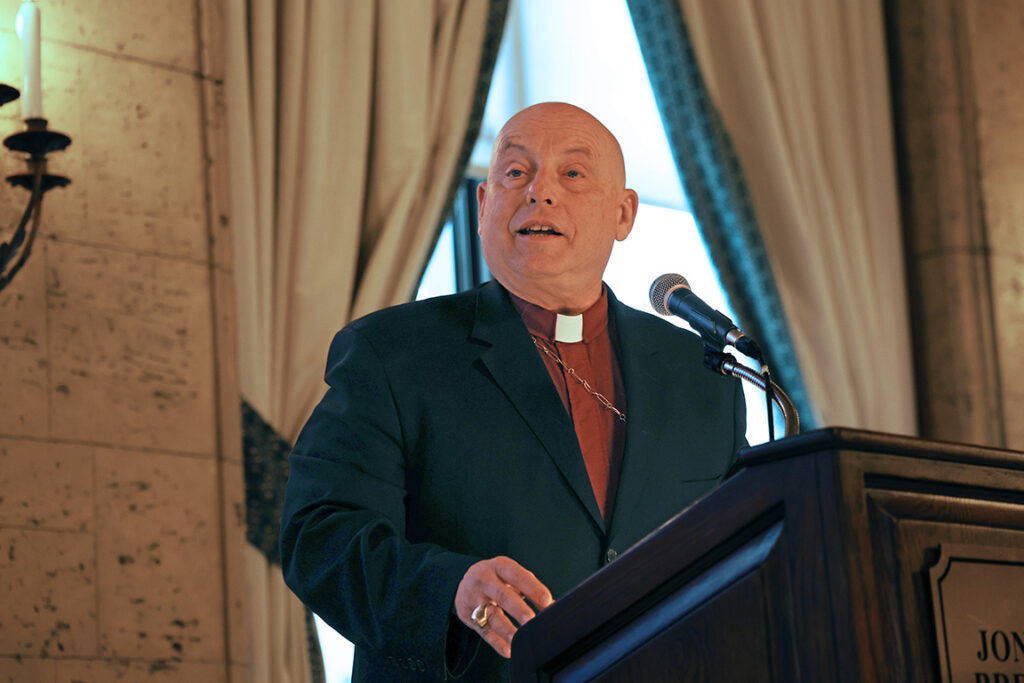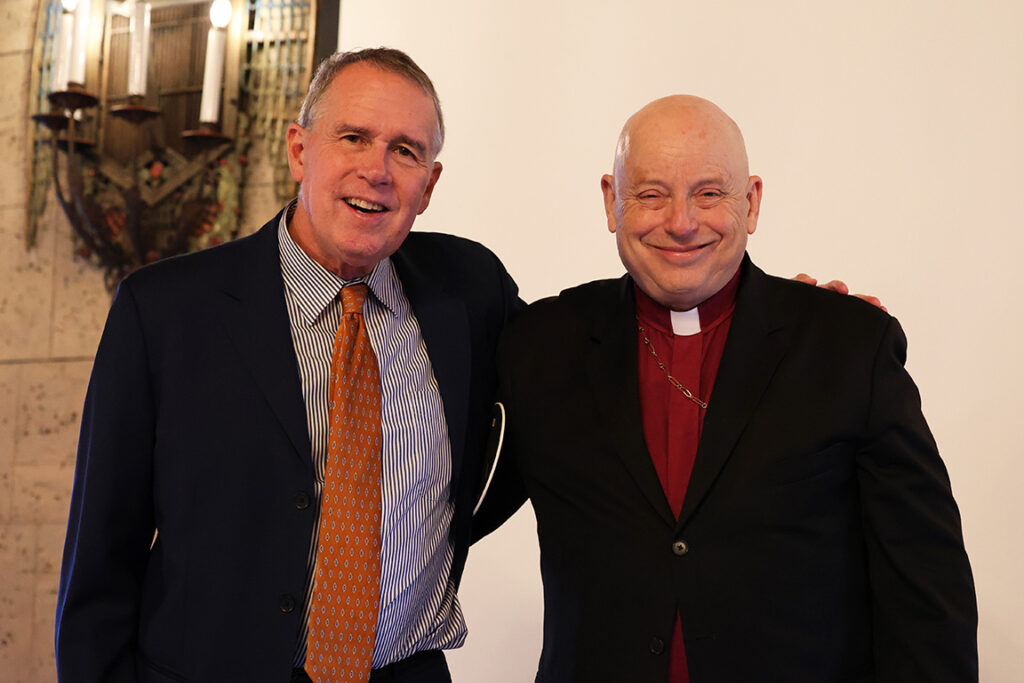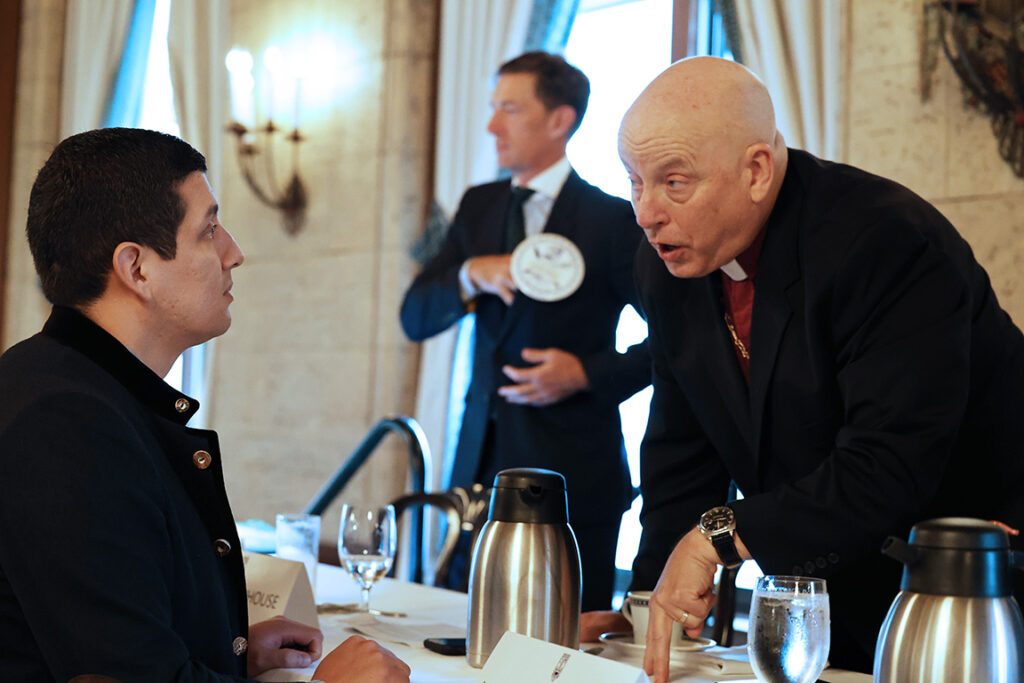
Bishop John Harvey Taylor addresses the Breakfast Club at the venerable Jonathan Club in Los Angeles. Photos: Janet Kawamoto
[The Episcopal News] Everyone can make a difference in the world – they just have to choose to use the power they have, Bishop John Harvey Taylor told the March 12 meeting of the Breakfast Club at the downtown Los Angeles Jonathan Club, founded in 1895, an association for well-connected Angelenos of an array of religious and non-religious thought; a fact Taylor acknowledged as he addressed “the challenge that we share … [of] keeping calm amid the unfolding domestic and international crises of this hyper-political year 2024.”
Taylor was introduced at the event by Jonathan Club member Eric Edmunds, a parishioner at St. Matthew’s Church, Pacific Palisades.
Taylor promised not to stress faith in the divine as the only way to calm and peace. “In these anxious political times,” he said in a 20-minute address, “I can preach faith in whatever it is that you love as a reliable source of calm and contentment – family and friends; movies, music and books; the Dodgers and Angels; the Bruins and Trojans; plenty of exercise and plenty of sleep and water…Getting away from our phones and the news once in a while, and especially the good feeling we get from making thoughtful, caring choices about what we eat and drink and what we say and do because of what’s at stake for us each anxious day … our health, and the safety and feelings of the people closest to us. These are matters about which we are infinitely powerful.”

Taylor was introduced by Jonathan Club member Eric Edmunds, a parishioner at St. Matthew’s Church, Pacific Palisades.
Taylor evoked several people who inspired him during hospital stays near the end of their lives, including the late investor Charlie Munger, known to many of those present for his non-ideological bent; a nun cheerfully facing her mortality at a hospital in Orange; and the late Larry Seigel, a not especially observant Jew who accompanied his wife, Pam, every week to Sunday services at an Episcopal church just so she wouldn’t have to sit alone. During a pastoral visit hours before his death from cancer, Seigel asked Taylor, “How are you doing today?” The virtues the three embodied, Taylor said, were clarity, faith and curiosity.
He encouraged his listeners to remember their importance as members of the human race. “If you don’t believe we’re going to be with God at the end, I guarantee you’re still going to be part of the universe forever,” said Taylor. “You comprise material which is indestructible. It was here at the alpha, and will be here at the omega. Whether or not a perfect God created it, the self-sustaining system of which we’re a part is pretty close to perfect. And we each have the capacity to make it even better, no matter who wins an election.”

Taylor converses with a Breakfast Club attendee after his March 12 talk.
Taylor continued: “Thinking universally will also make us more protective of our environment. Respecting this great creation can’t help but turn us green. Just knowing how precious life is and how permanent life is can enable even a confirmed secularist to find a measure of peace, and also to make their way to the golden rule without ever even cracking a Bible.”
But the current fracturing of society is something to worry about, he added.
“If there’s anything that makes me anxious about our politics, it’s the fraying of the sacred bonds of union. So let’s be clear about what’s going on, have faith that we’re inextricably part of a miraculous universe, and give in to our curiosity about the diversity of those around us, almost everyone doing the best they can. May we each find our unique work this year, protecting and building up our great American experiment in democracy and pluralism — what Abraham Lincoln called the last best hope of Earth.”
